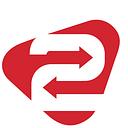Top In-Demand Web Development Frameworks in 2021
Websites are really important for any business, especially when you are looking to expand it and want to increase your reach. These days websites, are a must-have for any business, from physical shops to online stores. Having a website not only brings credibility but also helps in creating a reputation for your brand. In simpler words, websites can do wonders for your business.
However, there are trillions of websites on the internet. Not all websites are successful. A lot goes into the process of web development. It is not an easy job for a web developer to develop a website. Right from conceptualizing the idea and converting it into a fully functional website, several procedures are involved. But one of the most crucial things, or rather the backbone of any website, is the framework on which it is developed. Choosing the right framework is essential to make your website successful. You must choose the framework that fits all your requirements in terms of scalability and robustness and must be in sync with your future business goals.
Let us have a sneak-peak into the top frameworks for web app development.
Express
With the increasing popularity of Node.js, Express is rapidly becoming one of the most trending best frameworks for web development nowadays. Express is also compatible with other frameworks such as Kraken, Sails, and Loopback.
Express prides itself as a minimal, fast, and unopinionated framework, providing core framework functionalities without obscuring the features of Node and leveraging the robust performance of the asynchronous Node.js. Express is quite flexible and supports full applications, as well as REST API. Perhaps the biggest drawback of Express is the fact that there’s no defined way of doing things, at least for beginners.
Django
Django is a Model-View-Template framework that uses Python for web development and is used by big names such as Google, Youtube, and Instagram. Django boasts its batteries-included feature, which is a bunch of features such as authentication and messaging that Django has. It follows the Convention Over Configuration pattern and the DRY pattern, while security being a highlight. Django provides techniques and tools for developers to build a secure website or implements the security features in the framework itself, like preventing code execution in the template layer.
Rails
Rails is a Model-View-Controller framework that uses Ruby and is loved by developers around the globe. Airbnb, GitHub, Hulu, and Shopify are some big names using Rails, which is a beginner-friendly framework, helping them get started with web development quite quickly. There are many useful gems for rails, which are library-like dependencies that extend the functionalities of the application, helping you develop even faster and more efficiently. The Rails community is quite reliable and friendly, and there are many tutorials, screencasts, and resources that can help you become a rails expert in no time.
Laravel
Laravel is an MVC framework that uses PHP, which is one of the most popular web development languages. It’s relatively a younger framework.
Laravel comes with API support out of the box. It also possesses a decent amount of packages that could extend its reach. In terms of performance, however, Laravel doesn’t compete with Django or Express, which might be a drawback for massive projects.
Each web framework has its own boons and banes. Pick your web framework wisely. Get started with your web app development.
